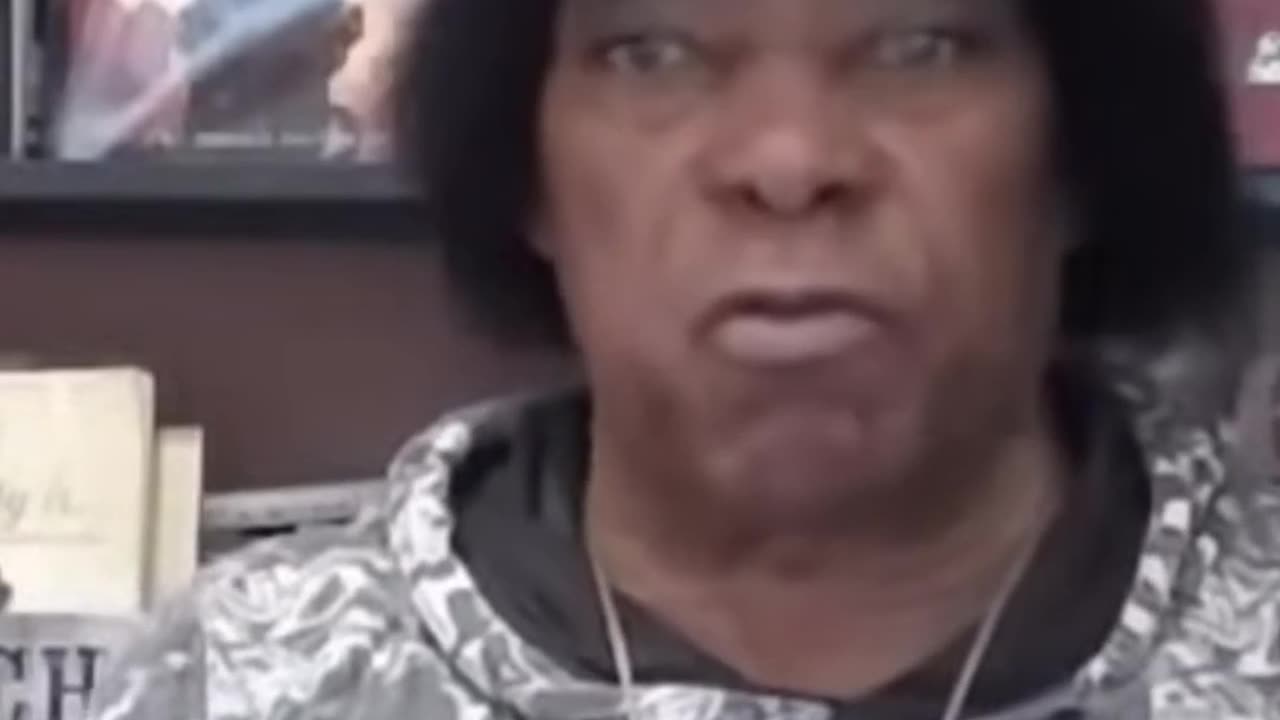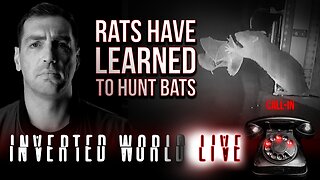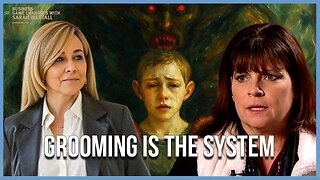Premium Only Content

Unlock Your Power: Civics Knowledge They Don't Want You To Know!
The video discusses the importance of civic knowledge and legal principles in addressing issues of gentrification, community empowerment, and understanding the legal system.
[109:48-109:53]
GSK Taj Tariq Bey addresses the issues of foreclosure and gentrification in court settings.
in foreclosing on properties and what gentrifying our communities. That's all connected.
[109:53-110:38]
The narrator explains the significance of understanding pedigree and jurisdiction in legal claims.
Your counter rebuttal will be a writ of certiorari. And logically, you need to know about your pedigree in the state have standing to even make that claim in person. That's the truth. And this is why a lot of times when our people begin to know that they're of indigenous to the land and if they're making the issue or the argument on that that reality and that fact but emotionally without understanding the principles they will they will take your papers or your claim of right and convert it into pro se when it should be appropriate persona which changes the status it seems that you they would say not say
[110:38-111:33]
The narrator emphasizes the need for civic knowledge to effectively advocate for community issues.
that you're presenting yourself that you're representing yourself then that gives them what you what you call subject matter jurisdiction but if you don't know if you don't know jurisprudence you wouldn't know that trick this is why we continuously been teaching so on civics because we also know with all the many people that many women have all always been coming together or having meetings trying to protect our communities or try to solidify our communities. If they don't know these things, they waste their time. And they have a lot of people in meetings wasting everybody's time with making emotional arguments of racism and color, not knowing that's an indication of incompetence, absolute incompetence. But they don't know that because they're operating from an emotional perspective. But in law, in order for an air, we're talking airship now, to be heritable, they must be competent.
[111:33-111:49]
The narrator discusses the concept of wardship tenure and its connection to military operations in the U.S.
And this is where the wardship, write this down, wardship tenure. So the wardship tenure operations is really the military operations under the interregnum operation of the United States Corporation Company, how they've been successfully promoting themselves as the country.
[111:49-112:20]
The narrator encourages the audience to invest time in learning civic knowledge for community empowerment.
And they've been getting over with it because our people don't know basic civics. Again, while we've been doing what we've been doing here forever at the House of Reawakening Minds, and knowing that a lot of people don't comprehend immediately what we're saying, but we're giving you reference points because we can't tell you everything in these meetings of a couple hours. We can give you directional information that once you start vesting in yourself, not only will you find out what we're telling you is true, you'll find out how many dirty people around you that you've been trusting.
[112:21-112:55]
The narrator identifies the challenge of recognizing true support and betrayal within community interactions.
which is a lot of people sometimes when they get into this information you get disappointed when you find people around you that uh gave you the idea that they were really in support of principle and you discover in the background they've been trying to stab you because they've been compromised but it's not a matter of promoting division this matter of telling you how to identify who's who in other words with civic knowledge you can pull the mask off of everyone And thus the prima facie operatives, doesn't matter who they are, are exposed.
[112:55-113:09]
The narrator explains why geopolitics is not taught to indigenous peoples and the importance of understanding principles.
That's why they don't teach geopolitics to indigenous people. Because once you know the principles, because remember, principles is not dealing with personalization, it's dealing with maxims. And so it's neutral.
[113:09-113:27]
The narrator describes the symbolic representation of justice in legal contexts.
And that's symbolized by, you see, the feminine principle of justice with a bandana around her eyes. And then you see her have scales. That's what it means. That means she doesn't recognize personal principle or station. It's principle.
[113:27-113:52]
The narrator differentiates between positive law and negative law within the legal framework.
So that's when you get into what you call positive law known as jurisprudence. But negative law is classified as law, but it is not law, but only for the sake of study. It is called negative law. That's why those who know law know that 11 level of the amendment out is all negative law. All your positive laws, Constitution, treaty, article one to 10.
[113:52-114:26]
The House of Reawakening Minds announces a civics class intended to educate the community about legal principles.
that's the truth now anyone that knows true jurisprudence knows that as a fact and in in in what you call de facto administrative teachings of what you call law they will teach you process they will not promote that principle so with that and we're almost at the end of the session but we do want to um let you all know that we return to our 4th Friday with our monthly civics class at the House of Reawakening
-
 2:09:24
2:09:24
Inverted World Live
6 hours agoRats Have Learned to Hunt Bats | Ep. 135
28.3K9 -
 2:48:01
2:48:01
TimcastIRL
7 hours agoLIVE Election Coverage: Polling Stations SWATTED, Bomb Threats Called In | Timcast IRL
245K174 -
 3:30:07
3:30:07
Barry Cunningham
7 hours agoBREAKING NEWS: COUNTDOWN TO COMMUNISM! ELECTION RESULTS SHOW!
54.7K43 -
 2:11:28
2:11:28
DeVory Darkins
7 hours agoLIVE NOW: 2025 Election results and Exit Polls AMA
65K44 -
 2:34:04
2:34:04
DLDAfterDark
5 hours ago $0.06 earnedJust Another Tuesday - In Virginia - The Governor's Race & Glock Talk
26K4 -
 3:21:38
3:21:38
The Charlie Kirk Show
8 hours agoJUDGMENT DAY 2025: The Election Results Stream
194K79 -
 3:51:07
3:51:07
MattMorseTV
9 hours ago $0.80 earned🔴Election Day LIVE COVERAGE.🔴
95.8K47 -
 1:16:51
1:16:51
Flyover Conservatives
1 day agoSHOCKING DATA REVEALS: Young Voters Are Done With the Old GOP - Mark Mitchell, Rasmussen Reports | FOC Show
40.5K17 -
 1:15:28
1:15:28
Sarah Westall
9 hours agoGrooming is Protected and Encouraged by the System – Michelle Peterson and Mike Adamovich
34.2K10 -
 4:00:13
4:00:13
Akademiks
6 hours agoKendrick tries to Flip the Bots on DRAKE? WHo Beats Jay z in a verzuz. Blueface finally free!
38.5K10